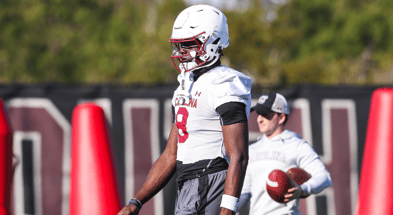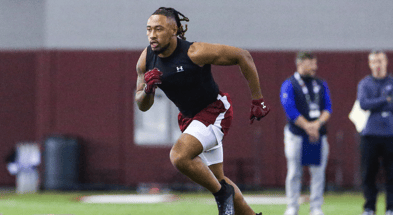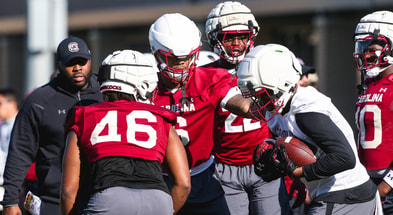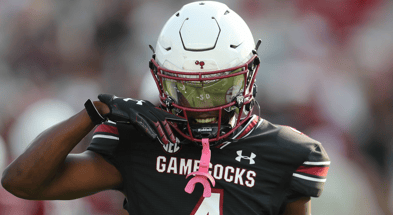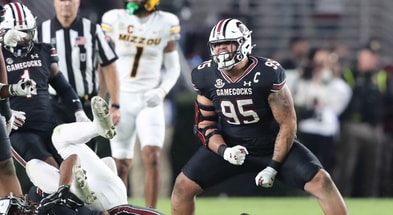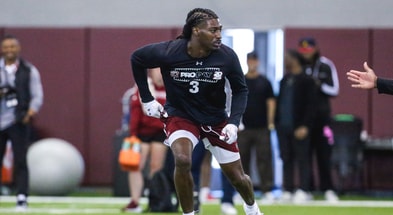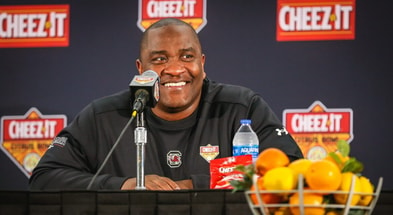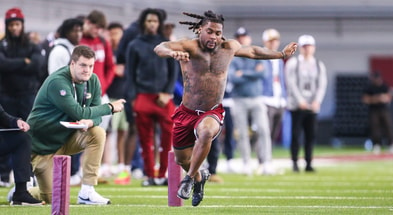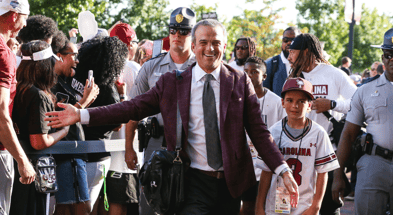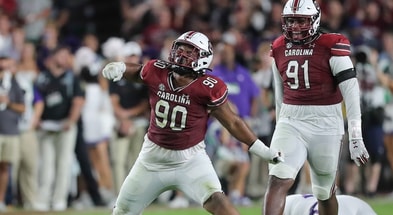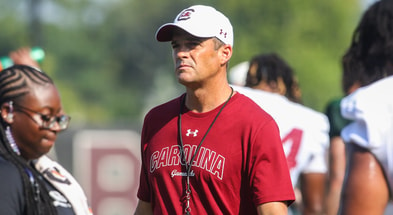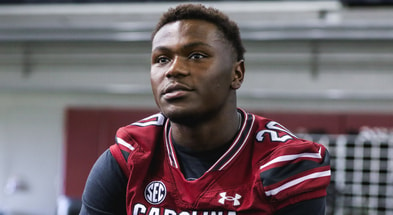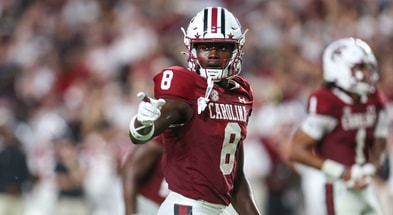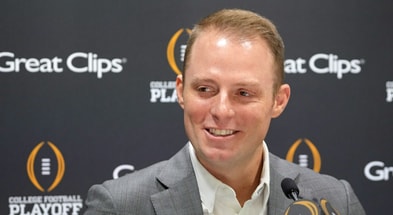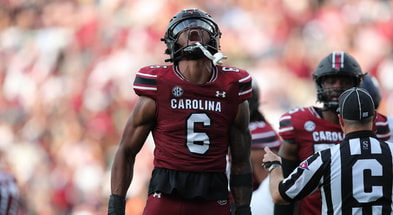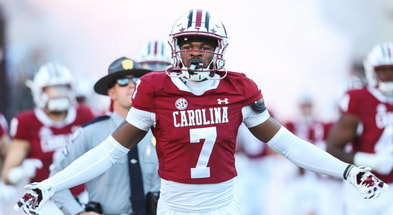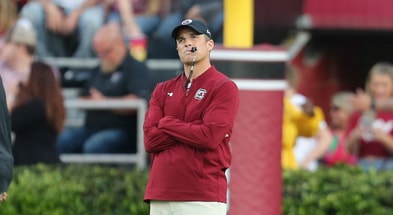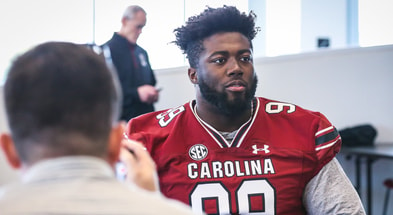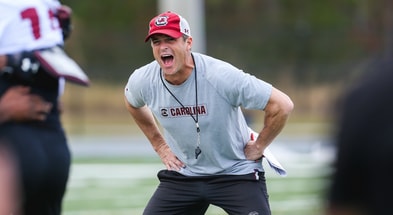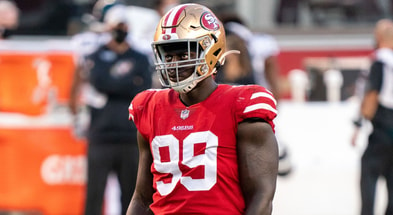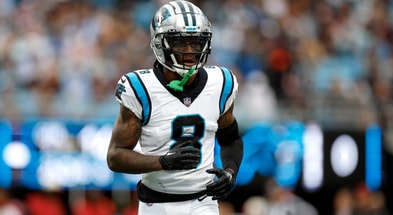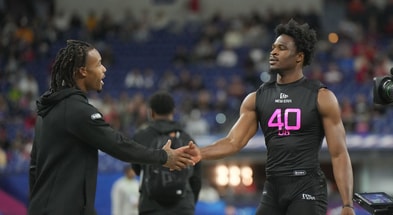How South Carolina plans to work through any potential helmet communication issues on offense
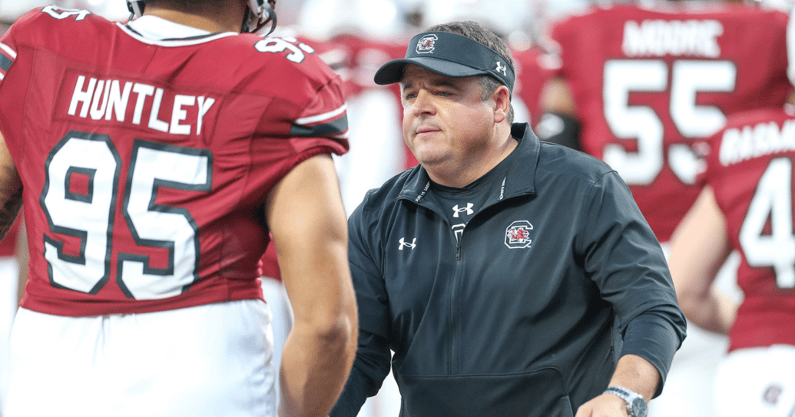
Any time change comes along, there are bound to be some issues that follow. It’s almost inevitable.
Especially when it comes to dealing with technology, there’s a good chance something could go wrong. One of the big changes coming to college football this year will be helmet communication. The NCAA approved a new rule to where coaches can communicate with one player on offense and defense with a radio installed in their helmet.
This may sound like a great idea, especially since the NFL has been using helmet communication since 1994. But there’s always a catch. Coach-to-player communication will shut off with 15 seconds left on the play clock or as soon as the ball snaps — whichever happens first.
[LIMITED TIME: 50% OFF of annual memberships! Join NOW and use promo code KICKOFF24]
Teams around the country have had months to work through this new change and how to approach it. For South Carolina offensive coordinator Dowell Loggains, it’s imperative to get the play calls in before the play clock hits 15 seconds. Otherwise, it will only create issues and confusion for the offense.
“I do believe the only bad call is a slow call,” Loggains said. “There’s a reason why every play is in the game plan, but if you’re getting calls in slow and then all of a sudden it puts the quarterback on the shot clock and it’s ticking down on him, you’re not giving him a chance to be successful.
“So the object is always to get the call in fast and that’s why you can’t get caught up in the emotion of the game. When the ball’s down, you can’t worry about what just happened on that play. You’re thinking about the next play.”
That might be the least of Loggains’ worries, though. He’s making it a priority to get the calls in as soon as possible. Between him and head coach Shane Beamer, they’ll be talking with quarterback LaNorris Sellers during the game. That’s all controllable. The real question is, what if something happens and there’s nothing he can do about it?
With helmet communication still being in its infancy phase, at least in college football, there’s always a chance the radio could give out or just not work like it should. Either way, Loggains said you have to be prepared for anything. When he was in the NFL, this was something that happened from time to time.
Top 10
- 1New
Byron Leftwich
CU hires former NFL OC
- 2Trending
Will Wade
NC State reaches agreement
- 3
Adou Thiero injury
Arkansas forward out vs. KU
- 4Hot
Jalen Milroe
Runs blazing 40 at Pro Day
- 5
Dick Vitale
Predicts Final Four, champs
Get the On3 Top 10 to your inbox every morning
By clicking "Subscribe to Newsletter", I agree to On3's Privacy Notice, Terms, and use of my personal information described therein.
“These things are going to go out. So you have to have backup plans,” Loggains said. “You still have signals, you have wristbands. You teach the quarterback, say you’re in 11 personnel, you’re in 12 personnel, 21 personnel, if you get this and the thing goes out, you’ve got to be able to call these two or three plays. Here they are on a wristband if the headset goes out then get to your wristband, or have some default calls in your mind ready to go.”
[Win two tickets to the South Carolina-Old Dominion football game]
This will certainly be an adjustment period for many teams, especially as Week One begins on Saturday. Helmet communication has already started facing problems going back to the first game of the season. In last Saturday’s Georgia Tech vs. Florida State game in Ireland, Yellow Jackets quarterback Haynes King seemingly struggled to pick up what his coaches were relaying to him.
Depending on the team, some are going to embrace the change, while others will not. Loggains still believes signals are going to be a mainstay in the sport for the long haul. But he’s interested to see how teams handle any issues that may arise.
“I think the guys with NFL experience have a little bit of an advantage on how they think they want to use it,” he said. “… If you’re a huddle team, I think that the signals probably go away, but if you’re an on-the-ball, no huddle team or a tempo team that’s going really fast, I think that won’t change. I think someone’s just going to give the quarterbacks coaching and pointers.”

